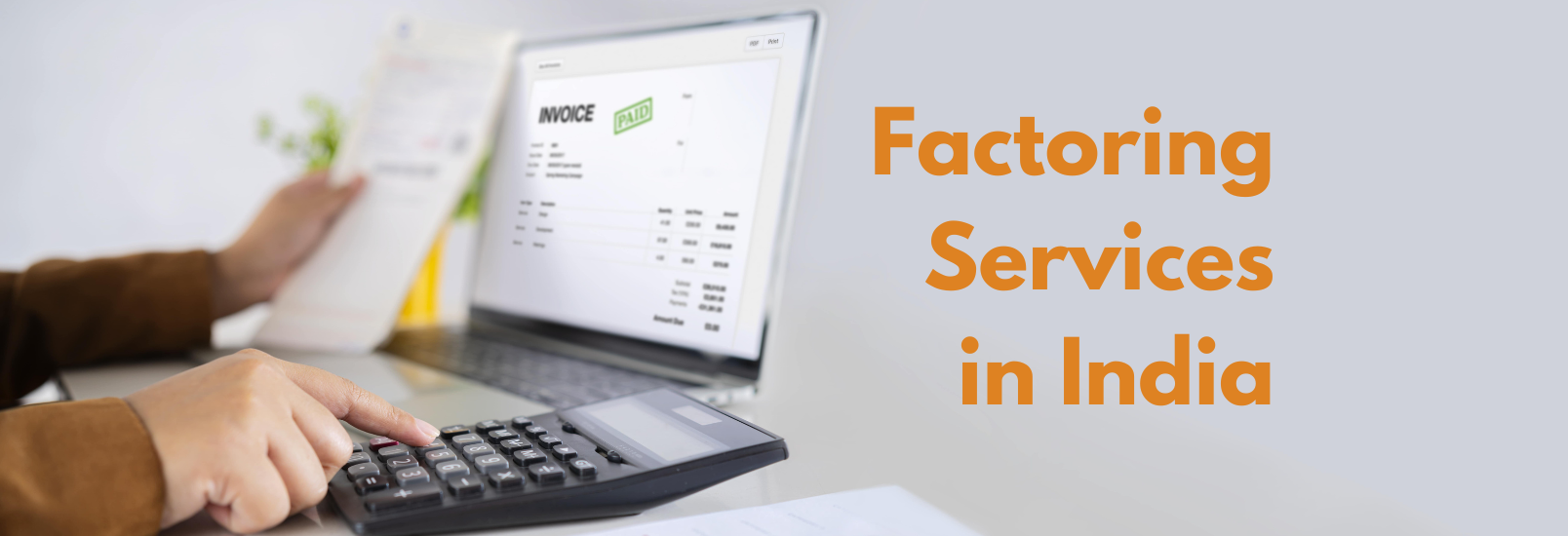Overview
The importance of information in the areas of finance banking insurance and credit control cannot be overemphasised. We are in a data driven world and information reports give the necessary data for professionals in the field of finance take appropriate decisions that based on facts and accurate data.
Credit reports are useful in understanding better the people behind the organisations including shareholding pattern, constituents of board of directors and other such information that will help the user know more about the people running the organisation.
The information report also contains financial information, key ratios, and business-related information like analysis figures and such. It helps present information in an organised manner which is key to decision making.
The purpose of this blog is to highlight the importance of business reports and to understand the importance of business intelligence and its relevance in banking and insurance sectors.
It also contains essential information regarding the components of a good business information reports, role and importance in today’s fast evolving business landscape.
How Business Reports Are Complied?
Business information reports are compiled using both primary and secondary data, Very often especially in the case of proprietors and non-incorporated entities there is not much of public information available. It is therefore essential that information agencies undertake physical visits to verify the sanctity of data published in the report. It also included calls and visits to such entities to check the veracity of facts mentioned in the report.
This is critical as very often a physical visit is required to verify all facts including whether the entity is in existence.
Business information and its accuracy also depends on the ability for such companies to have direct access to secondary information such as ministry of corporate affairs and all other statutory and regulatory bodies. This information underscores the importance of credit information companies to give correct and accurate data as published by the relevant govt bodies.
Purpose Of Business Intelligence Reports
Business intelligence reports provide valuable insights by analysing and presenting data helping organisations make informed decisions. These reports enable a deeper understanding of trends, performance metrics, and key indicators ultimately enhancing strategic planning and operational efficiency.
- In any organisation, reports are essential to communication. Reports are the only available options in large organisations. It draws attention to the main ideas and objectives of business reports.
- Information Transmission: The most effective way to transfer information from one person to another is through business reports. When managing complicated data in large businesses, reports are useful tools for managers to obtain the information they need.
- Event interpretation and explanation: Reports make information easier for people to understand. It interprets and clarifies the facts in a way that is easy to comprehend.
- Making Decisions: One tool that might assist stakeholders in making decisions is a report. The fundamental managerial tool for decision-making and problem-solving is a report.
- Communication with external stakeholders: Sharing information with external stakeholders is beneficial in addition to internal stakeholders.
- Knowledge base development: Reports contribute to the establishment of an organization's rich information base. It keeps a permanent record of every company operation, which is archived for future use.
- Reports provide the required information to enforce controlling techniques.
- Reports not only provide information but also stands a source to provide solutions to problems.
Components
Typically, business intelligence reports typically include.
- Data Sources: this is collected from various internal and external sources.
- Data Modelling: Structuring and organising data to facilitate efficient querying and reporting.
- ETL: (Extract, Transform and Load). Typically, these reports extract data from source systems and transform them into suitable format and then load the same.
- Reporting Tools: Software or platforms that create visualisations, dashboards and reports based on analysed data.
- Data Analysis: Techniques used to analyse and interpret data and getting useful insights.
- Key performance Indicators: Metrics that measure the performance of the organisation or department.
- Dashboards: A visual display of key metrics and performance indicators providing a quick overview of the organisation’s status.
These components work together to transform raw data into actionable insights supporting a data driven decision making within the organisation.
Role Of Credit Information Companies: In Banking
Credit information companies have a key role in ensuring that decisions taken by management are taken based on fact and accurate and correct presentation of fact Briefly credit information companies have a key role to play that include.
- To make certain that lenders can readily obtain information about a prospective borrower's credit history.
- To provide lenders with correct data.
- To facilitate prospective borrowers' simple access to credit.
- To assist lenders in making consistent, ethical, profitable, and appropriate lending decisions.
- To guarantee that clients are shielded from excessive debt by providing all pertinent credit exposure data, which aids lenders in assessing the borrower's capacity to repay the loan.
- To guarantee that lenders are protected from fraud, a significant and expanding issue.
- To guarantee that clients understand the importance of credit information providers.
- To support prudent lending and borrowing practices.
- Details and stats on a specific topic.
- Credit information companies are not only important for individual lenders and borrowers but is also instrumental to a nation's overall economic development. According to the International Finance Corporation, credit information companies are crucial because they benefit every aspect of the credit economy.
- The Reserve Bank of India and the Indian government also depend on credit information companies to facilitate easy access to credit, which in turn encourages responsible consumer spending on goods and services that will boost the country's GDP. Lenders rely on credit information companies to determine risk and allot credit based on informed decision and in a more efficient manner.
- A Credit Information Report (CIR) is a summary of an individual's historical repayment history as provided by a number of member banks and financial institutions. It is crucial that you periodically check on your CIR.
Role of Credit Information Reports in Insurance Sector
Business intelligence for insurance helps automate regulatory reporting processes by enabling customizable dashboards that monitor critical data such as claims information, customer profiles, policy management records, etc. Some of the uses that business intelligence reports impart to the insurance sector as follows:
- Get data-driven insights to make smarter business decisions in real-time about product risk management, policies, covers, and premiums.
- Find new ways to make money by upselling and cross-selling products in line with the state of the market to better serve customers' demands. Along with possible risk and exposures to insurance portfolios across product offerings and business categories.
- Monitor key performance indicators (KPIs) and receive push notifications or instant alerts if there is a change to the data pertaining to a certain KPI. And identify any bottlenecks that might be influencing performance and make necessary adjustments.
- Get a 360-degree perspective of customers, their requirements, behaviours, and buying habits to personalise products, draw in new business, and keep hold of current customers with timely outreach.
- Monitor insurance sales performance down to the agent level.
- Make it simple for underwriters to obtain premium loss ratios.
Want to give your business Global Validation and Legitimacy?
Apply for LEI Registration with MNS
(A validation Agent Appointed by GLIEF for issuance of LEI in India)
Other Benefits Include:
1. Reporting And Financial Projection
- Help Gather, Analyse, And Generate Reports Upon Data In Real-Time. Ensures A Smooth Workflow By Automating The Creation, Dissemination, And Compilation Of Reports.
2. Management Of Claims
- An All-Encompassing Perspective On Claims Procedures (Open, Closed, And More)
- Simple Access To Consumer Profiles For Deductions.
- Examine Past Claims To Speed Up Client Support.
3. Customer Persona Insights
- Knowledge About The Customer
- Makes It Possible For Decision-Makers To Evaluate Which Sales Channels Are Succeeding And Which Are Not.
- Better Data Also Enables Insurers To Target More Individuals With Relevant, Timely Outreach By Personalising Their Offers And Messaging.
4. Underwriting And Risk Management
- Produce Precise Forecasts To Control Risk And Insure Against Loss.
- Boost Fraud Detection, Claimant Correlation, And Claims Handling.
- Helps Insurance Companies Help Clients Avoid Situations Where Claims Are Made.
- Centralised Access To Data
- Combined Data And Information From Several Different, Unrelated Sources
- Assist In Staying Current With
- Assist In Staying Up To Date With Evolving Legislation And Even Defend Against Moves Made By Rivals.
- Make It Possible To Compile And Aggregate Data From Any Electronic Dataset.
Challenges In Making Business Information Reports
1. No Data Hygiene
- Report-Building Data Is Usually Housed In Many, Disjointed Systems, With Distinct Formats And Coding Structures. This Data Needs To Be Reliable And Consistent, Free Of Duplicates And Outdated, Incomplete, Or Inaccurate Information In Order To Be Useful. Problems Can Occur If The Data Isn't Correctly Cleaned And Combined Before A Report Is Run; After All, A Typo In A Spreadsheet Cell Can Invalidate The Entire Report And Result In Poor Decision-Making.
2. Ensuring Data Security
- By Protecting Information From Unauthorized Access, Corruption, Or Theft — Is Necessary For All Organizations.
Without Adequate Data Protection, Businesses Run The Risk Of Becoming The Target Of Cyberattacks, Data Breaches, Internal Threats, And Human Error. Cyberattacks Can Be Costly For Businesses, With Some Companies Losing Millions Of Dollars Because Of Widespread Data Breaches.
3. Static Reporting
- Team Members Need To Be Able To Promptly Access Pertinent Information In Order To Make Decisions That Are Both Accurate And Timely. Static Reporting, Or Reports That Offer Information Pertinent To A Certain Period, Is Helpful In Some Situations, Such Tracking The Performance Of A Brand, Product, Or Market, But It Is Less Beneficial For Long-Term Planning. Static Reports Are Frequently Preserved In Order To Evaluate Previous Data Because Of Their Short Shelf Life.
4. Poor Report Design
- Employees Of An Organisation May Have Varying Tastes In Data Visualisation; They May Prefer To See Data As Charts, Line Graphs, Or Bar Graphs, For Instance. While Sales Managers May Only Be Interested In Data Pertaining To Their Teams' Performance, Board Members May Need High-Level Information On The Company's Overall Business Performance. An Organization's Reports May Not Contain The Information That Various Stakeholders Require If These Needs Are Not Effectively Communicated, Leading To Repeated Revisions That Are Either Excessively Or Insufficiently Thorough.
5. Inexperienced Staff
- Even While It's Common For Reporting Systems To Be Simple To Use And Comprehend, Not All Teams Have The Skills Or Training Needed To Properly Analyse And Comprehend The Data. These Kinds Of Gaps Might Arise, For Example, When Employees Who Have Worked With Technology For A Company Depart, Leaving Those Employees Less Versed In Data Analytics.
6. Inadequate Integrated Reporting
- In An Effort To Achieve Their Business Objectives, Organisations Produce Reports That Are Centred Around A Range Of Benchmarks. This Allows Them To Extract Valuable Data And Insights That They Can Utilise To Inform Their Decision-Making. However, When The Reporting System Is Not Integrated With The Planning System, There May Be Potential For Mistakes And Inaccurate Data.
7. Manual Report Creation
- Making Reports By Hand Raises The Risk Of Error Introduction. Because Many Enterprises Resource Planning (Erp) Systems Aren’t Built With Robust, Built-In Reporting Capability, Teams Typically Develop A Workaround, Often Exporting Data From A System, Importing It To A Spreadsheet, Manually Manipulating It, Then Formatting It To Suit Their Needs. Not Only Does This Process Siphon Significant Staff Time And Resources, But It Can Also Introduce Errors And Result In Inaccurate Information That Negatively Impacts Decision-Making.
8. Inadequate Reporting Software
- Data Needs To Be Aggregated And Integrated For Reporting To Be Successful. Data Disconnects Occur When Tools Are Unable To Communicate With One Another, Making It Difficult For Organisations To Establish A Single Source Of Truth. Reporting Software Tools May Also Be Inadequate When They Don’t Fulfil The Reporting Requirements A Company Needs, Or They Are Not Built To Support The Organization’s Communication Goals.
Conclusion
It Is Evident That Business Intelligence And Credit Information Reports Provide An Invaluable Insight To Decision Makers To Help Take Decisions Based On Fact And That Are Accurate And Verifiable.
Recent Developments In Ai And Ml Have Made Vast Amounts Of Data Both Structured And Unstructured Available To The User In Real Time. But The Main Concern Is On The Veracity Of These Reports. If Reports Are Made On Data That Are Not Verifiable And Questionable This Will Not Only Compromise The Quality Of Reports But Will Result In Decision Makers Taking The Wrong Decision That Could Be Detrimental To The Organisation. It Is Therefore Vital For Credit Information Provider To Not Only Provide Information But To Corroborate The Same With Valid References. This Will Help In Ensuring That All The Information Provided Through These Reports Stand The Test Of Accuracy Quality, With India Now In The Centre Stage Of Global Development It Is Imperative That The Quality Of Reports Produced In India Are On Par With Best Practices Across The World. This Will Help Instil Confidence To Potential Investors Both Domestic And Foreign To Base Their Decisions On High Quality And Verifiable Information That These Information Agencies Provide.









